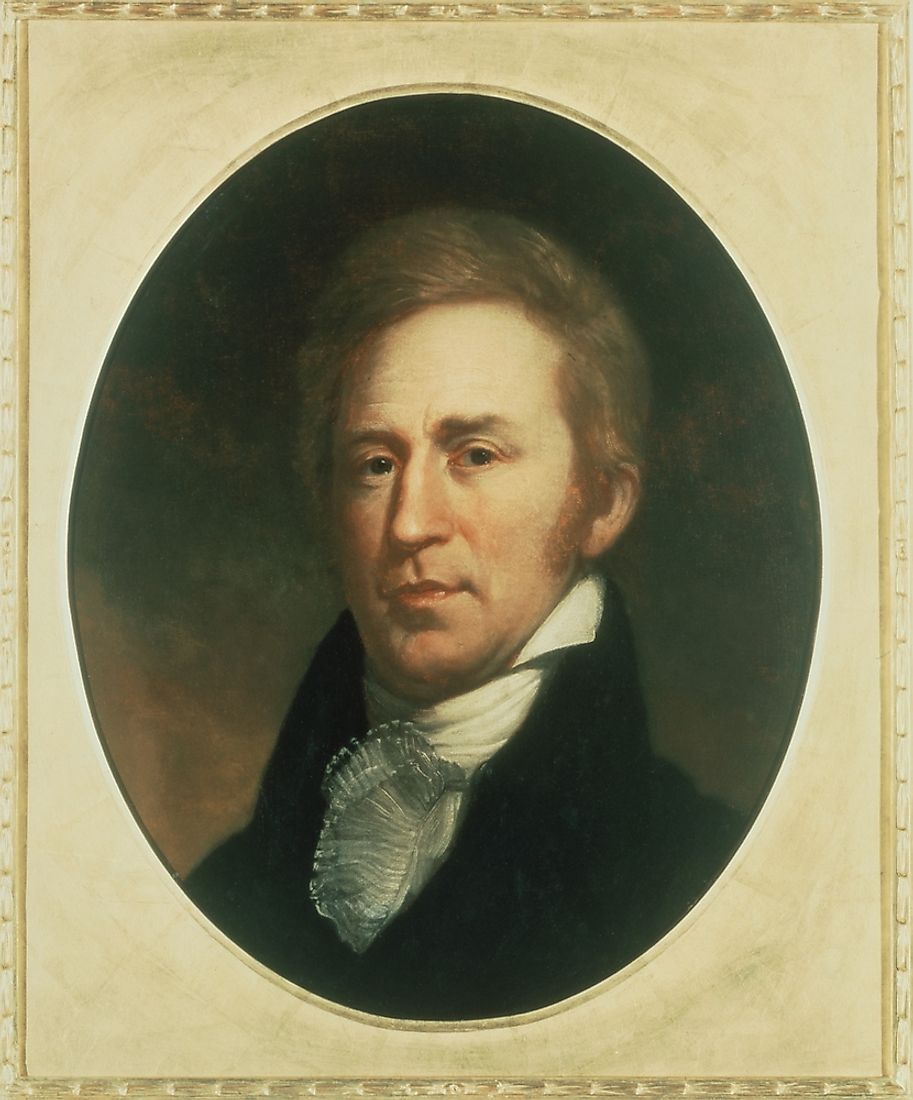William Clark - Famous Explorers of the World

5. Early Life
William Clark was born on August 1, 1770, near what is today Ladysmith, in Caroline County in the British Virginia Colony. In adulthood, Clark became noteworthy as an explorer, territorial governor, and soldier alike. His later boyhood years were spent in Kentucky, where his family settled. Clark's family were Anglican and originally from England and Scotland. Like many of his contemporaries, he was schooled at home, belonging to the emerging middle-class of common planters in Virginia. Clark learned survival skills in the wild from his older brother. All five of his older brothers had served in the military. Clark enlisted in a local militia force himself in 1789, with the militias main campaigns being waged against the local Indians who were harassing local settlers.
4. Career
In 1791, he acted as ensign and lieutenant in expeditions under Scott and Wilkinson. The following year, he retained his title as lieutenant in the United States Legion to fight the British-supported Northwest Indians in what would subsequently become Ohio Territory. Poor in health, at 26 years of age Clark left the service to convalesce at his Mulberry Hill home. Then, in 1803, Lewis asked Clark to assist him in a new endeavor. The task was taken on and, as a 33 year old U.S. Army Commanding Officer, Clark was chosen to be second-in-command to Meriwether Lewis in the transatlantic expedition proposed and funded by President Jefferson. Returning from the expedition, he was assigned as brigadier general in the militia of Louisiana. He was also a member of the Freemasons.
3. Major Contributions
The Lewis and Clark cross-continent expedition to the Pacific coast was declared a success by President Jefferson. Lewis immediately began to serve as superintendent of Indian affairs in Louisiana Territory. Clark, like Lewis, was later given a territorial governorship, with Clark's in Missouri and Lewis's in Louisiana Territory. Clark, also like Lewis, had developed empathy to the Native American Indians' plight after having gone through their expedition. Clark devoted most of his service by assisting the Indians in preserving their culture. He was between a rock and a hard place in interpreting his role, as he has learned to genuinely respect the Native Americans. He stayed in office until 1820. Then, in 1822, President Monroe appointed him as Superintendent of Indian Affairs.
2. Challenges
The many challenges that Clark faced in his new position were similar to those experienced by Lewis. Clark had hard choices to make in his decisions between serving the US government and considering the interests of the Native Americans. He was one of the four superintendents for Indian affairs. Clark's position was overshadowed by his sympathy for the uprooted Indian tribes, but the government's primary goal had to come first. One recurring problem was the Indian Removal policy, which President Jackson later espoused, and he had to wage war against the Blackhawk nation when treaties broke down. His belief in the Jeffersonian assimilation ideology put him in a quandary with regards to his official duties.
1. Death and Legacy
On September 1, 1838, Clark, at 68 years of age, passed away at his home in St. Louis, Missouri. Clark had earned a reputation for always being a fair man in disputes between the white settlers and the Native Americans. The many challenges had taken a toll on his mate, Lewis, who had died at the age of 35. This was hard on Clark, as during their share of command on the transatlantic expedition, Lewis and Clark were said to never have had a serious dispute despite going through all of the hardships and stresses involved with traversing the wilderness and dealing with the indigenous populations. The contributions of Lewis and Clark cannot be underestimated, as they were two true American heroes who crossed massive boundaries of language and culture to accomplish their goals as explorers.











